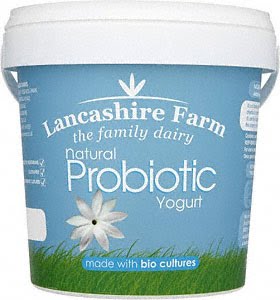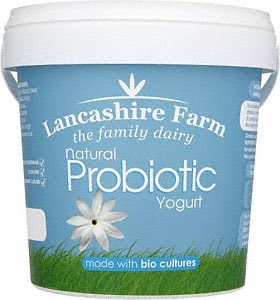 We often think of bacteria as something that makes us sick. Sinus, throat, bladder and ear infections are some of the most common in the U.S., treated by antibiotics. Antibiotics work by eliminating the bad bacteria causing the infection. Unfortunately, they also kill the good bacteria commonly found in your gut. No wonder why side effects of antibiotics include diarrhea and cramping. The human digestive tract plays host to a never-ending battle of good bacteria vs. bad bacteria. The same way antibiotics kill bacteria, probiotics replenish the healthy bacteria we need for proper digestion and health.
We often think of bacteria as something that makes us sick. Sinus, throat, bladder and ear infections are some of the most common in the U.S., treated by antibiotics. Antibiotics work by eliminating the bad bacteria causing the infection. Unfortunately, they also kill the good bacteria commonly found in your gut. No wonder why side effects of antibiotics include diarrhea and cramping. The human digestive tract plays host to a never-ending battle of good bacteria vs. bad bacteria. The same way antibiotics kill bacteria, probiotics replenish the healthy bacteria we need for proper digestion and health.
What are probiotics?
Probiotics are live bacteria and yeasts that are good for our health and digestive system. Probiotics are the “helpful” bacteria in our digestive system. While naturally found in the human body, supplement forms have become popular over the years as a way to replenish and add to the digestive tract. Everything from yogurt to chocolate can contain our little “friends” as their popularity has risen since the mid-1990s.
Types of probiotics
While there are many strands, two major classifications can be commonly found: Lactobacillus and Bifidobacterium. The most common of the two is lactobacillus, a probiotic found in yogurt and other fermented foods. This strand helps mainly in those with diarrhea and lactose intolerance. The other major classification, Bifidobacterium can assist in people with Irritable Bowel Syndrome.
Health Benefits
As they replenish the gut with healthy bacteria, probiotics can ease not only digestive symptoms but common yeast infections as well. Research is still ongoing for their exact health benefits, but many attribute daily probiotic intake in the reduction of IBS symptoms (gas, bloating, cramping, nausea, and diarrhea). Research has recently shown that probiotics can help out in other areas of the body including but not limited to eczema, urinary and vaginal health, preventing allergies and colds, and oral health.
Prior to starting a new diet that may be rich in probiotics, it is recommended that you contact your doctor to discuss your digestive issues and treatment plan.


 We often think of bacteria as something that makes us sick. Sinus, throat, bladder and ear infections are some of the most common in the U.S., treated by antibiotics. Antibiotics work by eliminating the bad bacteria causing the infection. Unfortunately, they also kill the good bacteria commonly found in your gut. No wonder why side effects of antibiotics include diarrhea and cramping. The human digestive tract plays host to a never-ending battle of good bacteria vs. bad bacteria. The same way antibiotics kill bacteria, probiotics replenish the healthy bacteria we need for proper digestion and health.
We often think of bacteria as something that makes us sick. Sinus, throat, bladder and ear infections are some of the most common in the U.S., treated by antibiotics. Antibiotics work by eliminating the bad bacteria causing the infection. Unfortunately, they also kill the good bacteria commonly found in your gut. No wonder why side effects of antibiotics include diarrhea and cramping. The human digestive tract plays host to a never-ending battle of good bacteria vs. bad bacteria. The same way antibiotics kill bacteria, probiotics replenish the healthy bacteria we need for proper digestion and health.